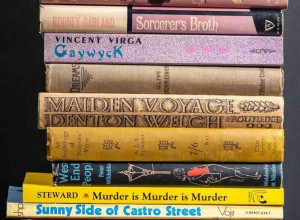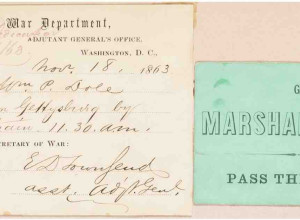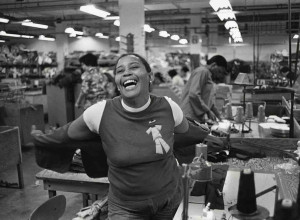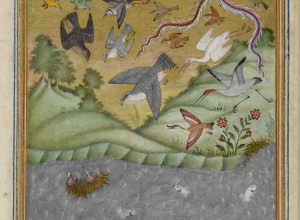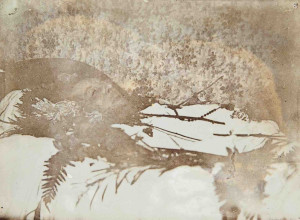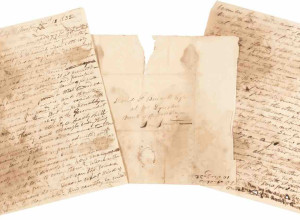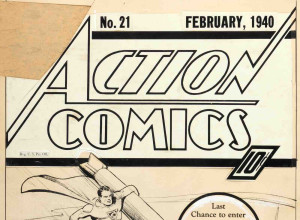Bright Young Booksellers: Nicholas McBurney
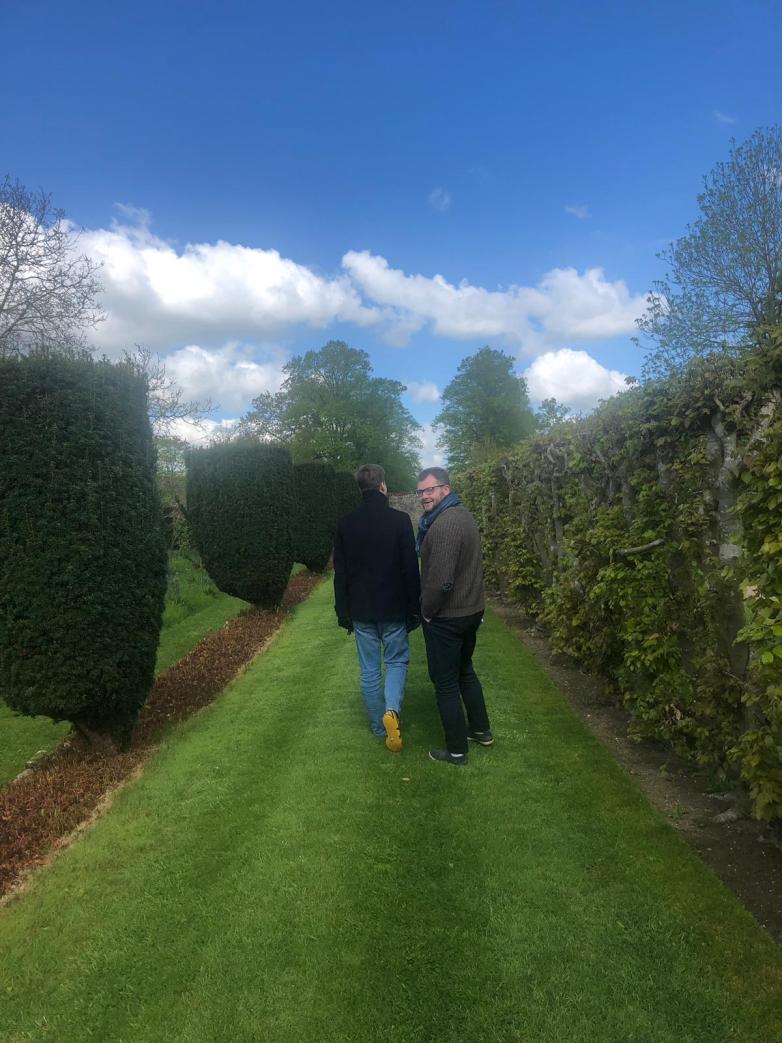
Our Bright Young Booksellers series continues today with Nicholas McBurney, proprietor of N. G. McBurney in London:
How did you get started in rare books?
I moved back to London in 2011, after doing my undergraduate degree at Yale and a year in New York, and then spent a year in London doing a weird mix of freelance work - some tutoring, commercial transcription, mostly for professional tribunals, and as an assistant on a project trying to collate surveys of Jewish material in former Soviet archives. I had no clue what I wanted to do, but very much wanted a job with a salary, so started applying for things.
It was not a particularly coherent approach. I put in to work in an MP’s office, largely because he’d written a book I liked. I’m always astonished now when I meet people in their early twenties who know exactly what they want to do. I thought I’d probably wind up in the military - really rather hard to believe now, and probably for the best that I didn’t. The year in NYC had been with an Episcopalian service program, to figure out if I wanted to be a priest - a successful process of discernment, in that I concluded quite firmly that I did not want to be a priest and that I would be an appalling one.
I’m not sure why I applied to Quaritch - I think a friend had sat next to a retired director of the firm at dinner and mentioned it to me. I’d worked as an accessions cataloguer in the university archives (plans chests, windowless basement room, barcodes), and in the Research Department of the Yale Center for British Art (glorious light-filled office right next to the galleries), but very much for the money, and because both were better than waiting tables on a breakfast shift, which I did my freshman year. I didn’t specialise in art history or literature at university. I read voraciously at school, a bit less at uni, but tended more to hoover through things then linger over texts. In hindsight, this was probably a warning sign that bookselling might suit.
Quaritch were the first people to give me an interview. I went along, with very little idea of what to expect, and found myself in front of a big black door on South Audley Street, ushered up a rather bleak, blank hall and staircase, and into a large book-lined room on the first floor. Barbara Scalvini, who is now at Christie’s, interviewed me. I remember almost nothing of the interview itself, but I think after a decent interval and a few polite questions, she handed me a small book and asked me to tell her what it was. It was in Latin. I looked at the title-page, flicked through the pages, and without much clue said that the title page and contents suggested it was a book of psalms, printed in Germany, in the year 15xx. (I cannot remember the imprint, but think it was Nuremberg.) Then I was handed something in French, rather more modern, and repeated the exercise, which was basically me reading off the label, as it were, with rusty schoolboy languages. A venerable Quaritch director wandered in (by design or not, I’ve no idea) and proceeded to ask me a few more questions. I must have managed something vaguely plausible in the way of answers, because they offered me a job as a trainee. I’d come away from the interview all but skipping, and took the job. The first few months were rather hair-raising. I knew very little about anything to do with rare books. But Quaritch was a grand place for a crash course in the essentials, and there came a point (after months cataloging a mixture of Soviet photobooks and a collection of the complete works of William Beveridge) when I was handed an early 19th-century manuscript in Arabic and asked to catalogue it. The title was straightforward enough - it was a history of the first hundred years of Christianity, copied in the Holy Land, signed and dated by the scribe. But the author’s name was a bugger. It had too many consonants, and I couldn’t get any set of vowels to make sense. Eventually, muttering out all the variations I could think of, I hit on something that sounded Greek. I Googled a few combinations - lo and behold, there was an 18th-century Russian Orthodox prelate with a Greek name who had composed a history of the first hundred years of Christianity. The bookseller who had passed it to me suggested a university with a Greek studies library - I quoted it to them, they bought it. My first rush from a successful sale. I eventually got booted upstairs, literally to the top floor, where I shared an office with Alex Day, and got to run the Islamic Department for a few years, with the benefit of someone more knowledgeable and experienced than me literally at my elbow. That he didn’t throw anything at me, given the more or less continuous barrage of questions and comments from my side of the room, is an absolute miracle. But he’s a much more patient man than me.
I bumped into Nicky Dunne of Heywood Hill at a friend’s shop, and heard the siren song of setting up a new rare books department on Curzon Street. It seemed like an interesting challenge, and good experience either way. It was a completely different world to Quaritch, and a very interesting change. I made a few dear friends and learned that I really wasn’t a natural shopfloor person. Christening presents were a particular nightmare - invariably, the would-be giver would name a famous author whose works had been made into films and/or television series, suggest they thought a first edition would be nice, and eventually provide a budget of £40. That you could buy several attractive modern editions of the relevant text for the same money never seemed to cross their mind, and quite what a six-month old would do with a first edition Austen I still don’t know… on the other side of the balance, you got customers such as one gentleman who rang up to ask for the first edition of Melville’s Moby Dick, printed in London in the same year as the American edition. I knew a copy had appeared at auction, but gone unsold, and thought another bookseller in London was now handling the collection. I rang them, they produced the book and a price. I went over the book, and reverted to the would-be buyer. He thanked me for it, and said he would consider it. Three months later, I got a call to say he was now in London, and was the book still available. It was. He took me to tea at Claridge’s, examined the book, and asked several questions. Away I went. The next day, he bought it.
Heywood Hill was and is a lovely bookshop, but I missed being working with more specialised material. I went to work for a bookseller who had been focused on Asia for decades, called John Randall (Books of Asia). This was a different sort of education - very much not an open shop, largely trading by correspondence, and my first real introduction to the early printing of the Islamic world. It was always intended as a transitional role, both for him and for me, and eventually the right moment came to go our different ways.
When did you open N. G. McBurney and what do you specialize in?
Summer 2019 - I specialise in printed books and manuscripts of the Islamic world. This covers everything from medieval Qur’an manuscripts to 20th-century revolutionary newspapers. I mostly handle material in Arabic and Persian, with occasional Ottoman Turkish and Urdu. In theory, I would try my hand at Malay, but I’m trying to be good about not doing things I can’t read. And there’s very little on the market.
What do you love about the book trade?
The variety and the collegiality. I like working in a business where many of the people I deal with are friends, and where doing someone a good turn mostly leads to something good coming your way in the fullness of time. I find the different things other booksellers love and sell delightful - it’s rather hard to get bored under the circumstances.
Describe a typical day for you:
I tend to get up around five and spend two hours cataloging. I find it’s the most productive time of day for me. Nobody calls or emails, even with time differences, and I don’t get any distractions. I’ll make tea at about seven and wake up my boyfriend, who has a more sensible job as a civil servant. Once he’s out the door, I usually manage another hour. I’m trying to be better about running or bicycling or lifting, so I spend forty minutes or so doing that, and then I try to get out the door. I’ll walk into central London (about an hour), collect my mail en route, and get a coffee, and then it depends. Might be viewing some books, might see a friend for lunch, usually wind up hitting a library in the afternoon, either to catch up on emails, check references, or both. Afternoons are usually a mix of seeing people and things, one way or the other.
Then it’s a walk home, via the grocer’s, to cook dinner, read, and head to bed.
Favorite rare book (or ephemera) that you’ve handled?
I bought an Indian manuscript at a Western books and manuscripts sale at Christie’s when I was still at Quaritch. It had been copied and illustrated in 1836 for the Scots-Rajput mercenary Colonel James Skinner, a man who really deserves a modern biography. The text is effectively a who’s who of the princely families of northern India at the time, written in Urdu. This was one of three copies known. Skinner seems to have given all three copies to different British officials and officers, together with illustrated copies of a text on the castes of India. It was in absolutely exquisite condition, with an elaborate binding of stamped gilt-paper and a contemporary silk slipcase, bright, fresh, and an absolute knock-out. The manuscript was the subject of my last catalogue at Quaritch.
What do you personally collect?
I’ve accumulated some reference (marked sale catalogues, the odd exhibition catalogue or dealer’s list) but I don’t have the hunger to accumulate that private collectors and some dealers seem to have. Our flat has a limited amount of space, and my boyfriend operates what amounts to a one in one out rule for books, so I try to be disciplined. Given more space and money, I’d love to collect Safavid ceramics, but for the moment I get enough pleasure from handling interesting things and then selling them.
What do you like to do outside of work?
I find my work / not work line is a blurry one. Much of what I enjoy reading or going to see seems to relate, sooner or later, to what I deal in. I love walking, though, and that very rarely seems to lead back to work. Otherwise, finally having a kitchen of our own and the space to entertain has been a joy. I grew up in a family of cooks (one sister is now a chef), and still love to cook, mix drinks, and get people over for a few hours or more. I used to row reasonably seriously, but now live at the wrong end of London to do that, so am making do with running, which isn’t anywhere near as relaxing. I’m trying to get into gardening, but since my great joy this year has been the profusion of mint and wild strawberries in our garden, that’s best described as an aspiration. I miss travelling for work - still get a childish delight from the whole process of flying somewhere else, even though airports are less and less pleasant.
Thoughts on the present state and/or future of the rare book trade?
I think plenty of more experienced, wiser people have said most of what there is to say. I have every confidence there will continue to be a rare book trade, and there seems plenty to keep me going, which is about all I selfishly require. It does seem increasingly hard to get into the trade without working for a larger firm or an auctioneer, though some smaller booksellers do take on employees. It’s a brutally capital-intensive business, so setting up on your own isn’t easy, and the bottom end of the market is much less profitable than it was thirty years ago, which means it’s harder to build your way up. My working idea of “cheap” is under £1,000, which is absolutely nuts relative to my own spending habits. But the basic work required to catalogue and sell a manuscript is the same whether it’s £100 or £10,000. Enough new booksellers do keep popping up, though, and I’m nowhere near the youngest person in the London book trade, which is immensely cheering.
Any upcoming fairs or catalogues?
My running joke is that my stock is “small and select” by necessity, which pretty well rules out fairs for the foreseeable. In the longer term, I think visibility is key, though whether that’s best achieved online, in ground floor premises, or at fairs, I don’t know yet. As for catalogues, I’m trying to build up enough stock to issue my first catalogue somewhere in 2020, but it’s hard not to just sell things at the moment. I tend to assume something else interesting will turn up with time.






